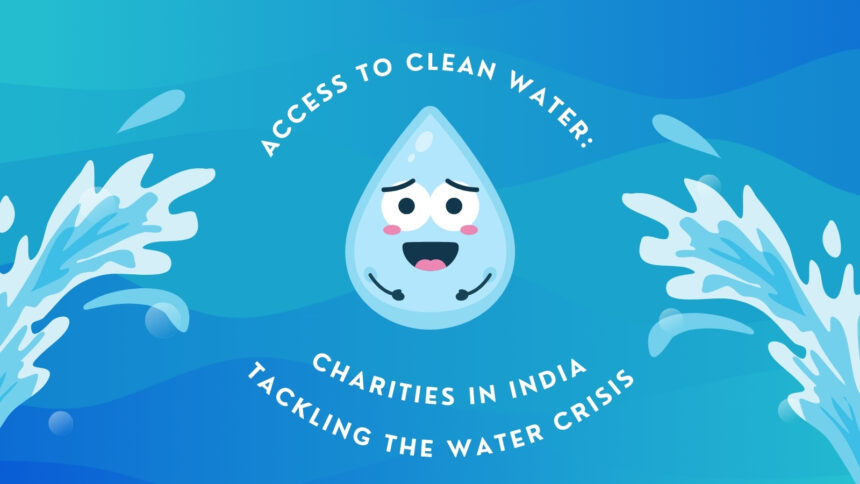Water is a fundamental human right, essential for survival and well-being. Yet, millions of people across the globe, particularly in developing countries like India, lack access to clean, potable water. This scarcity has far-reaching consequences, impacting health, education, economic development, and overall quality of life. In response to this pressing issue, numerous charities in India and non-governmental organizations (NGOs) are working tirelessly to address the water crisis and provide communities with sustainable solutions.
The Water Crisis in India
India, a country with a vast population and diverse geographical landscape, faces significant water challenges. Overexploitation of groundwater resources, pollution from industrial effluents and agricultural runoff, and the effects of climate change have exacerbated the water crisis in many regions. As a result, millions of people struggle to access clean water for drinking, cooking, sanitation, and agriculture, particularly in rural areas. Several charities in India have stepped up to tackle these challenges through innovative and community-centred solutions.
The Impact of Water Scarcity
The lack of access to clean water has a profound impact on the lives of millions of Indians. Waterborne diseases like cholera, typhoid, and diarrhoea are prevalent in areas with contaminated water sources, leading to high rates of morbidity and mortality, especially among children. The burden of water collection, often carried out by women and girls, can limit their access to education and economic opportunities. Additionally, water scarcity can hinder agricultural productivity, leading to food insecurity and poverty. This is where charities in India have made a significant difference by alleviating some of these burdens through targeted initiatives.
Charities in India Addressing the Water Crisis
Several dedicated charities in India are working to address the water crisis through a variety of initiatives:
1. Water Supply Projects: These organizations construct and maintain water supply systems, including wells, boreholes, and pipelines, to provide communities with access to clean drinking water. They often work in partnership with local governments and communities to ensure the sustainability of these projects.
2. Water Purification and Treatment: Some charities in India provide water purification and treatment technologies to make contaminated water safe for consumption. This can involve installing water filters, chlorination systems, or solar-powered purification units.
3. Rainwater Harvesting: Rainwater harvesting is a sustainable conservation approach involving collecting and storing rainwater for future use. Charities promote rainwater harvesting practices through awareness campaigns, training programs, and the construction of rainwater harvesting structures.
4. Water Conservation and Education: These organizations raise awareness about water conservation and promote sustainable water use practices. They conduct educational programs in schools and communities, teaching people about the importance of water conservation and how to reduce water wastage.
5. Community-Based Water Management: Some charities in India empower communities to manage their water resources through community-based water management (CBWM) programs. CBWM involves local communities taking ownership of water planning, development, and management, ensuring that water resources are used equitably and sustainably.
Conclusion
Access to clean water is a fundamental human right that should be available to everyone, regardless of socioeconomic status or location. The water crisis in India is a complex issue that requires multifaceted solutions. Charities in India play a crucial role in addressing this crisis by providing sustainable water solutions, promoting water conservation, and empowering communities. By working together, we can ensure that every Indian has access to clean water and a better quality of life.

